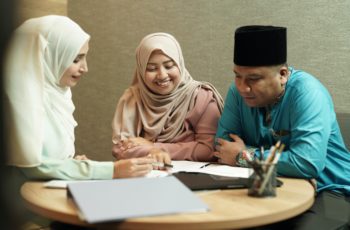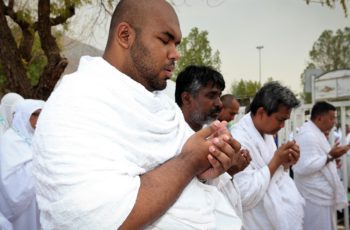Is money everything in a marriage?
There is a popular saying that money is not everything in life. Yes, money may not be everything, but it may still account for something, especially in a marriage.
Some couples may not be affected by money, but they may face issues pertaining to harmony. In contrast, many couples may not face issues with harmony but can be thrown into a web of financial adversity. Therefore, it is crucial to exercise wealth and financial planning in the family.
Among many verses in the Holy Quran, the importance of wealth planning was highlighted in Surah An-Nisa verse nine. Roughly, the verse told Muslims not to leave offspring behind and to fear for them, with the keyword being “weak” offspring. Hence, the lesson is Muslims should not leave their children in a position where they may have to beg for help when their parents are no longer around.
You plan to fail if you fail to plan
Planning the well-being of one’s family is strongly encouraged in Islam, including financial plans. It is crucial to understand that financial planning does not only refer to the distribution of inheritance upon death but also the provision of daily needs. If such responsibilities are neglected, a family will be at risk of financial strain. For instance, a family may identify needs and wants to prioritise particular expenditures. Prioritising may prevent the wastage of family funds and savings. Some examples of priority expenditures are children’s education and needs, bills and mortgage.
However, planning does not mean the family should become additionally stingy. This is in accordance with Surah Al-Israa’ verse 29, which translates to “And do not make your hands as chains to your neck or extend it completely and thereby becoming blamed and insolvent”. In this case, Allah swt has reminded us to be moderate and spend within our means – not excessively until we resort to loans and deplete our savings, but also not saving too much until it affects the quality of our life and other family members. A modest income, if managed well, may be more effective in providing for a family than a large income lost to excessive expenditures.
In a hadith narrated by Imam Bukhari, the Prophet saw said to save up some wealth for the future as that will be good for you (on family matters). In another hadith, as narrated by Abu Hurairah ra, the Prophet said that the best charity is given when you are self-sufficient and to start with whom you are responsible (family members).
Joint life, joint accounts
When discussing finances, it is inevitable to discuss issues on joint savings accounts. Based on information gathering and experience, there are no tools similar to a joint savings account held by a married couple. In Singapore, Islamic finance is not widespread and is mostly linked to investments. A joint savings account can be utilised for daily needs or to achieve a bigger goal in life.
The pros of having a joint savings account are:
- Transparency: Whatever one party spends is known to the other. Finance is usually one of the reasons for the breakdown of marriages; hence, transparency is critical.
- Ready access to funds: For the non-working parent, he or she will have ready access to money. Sometimes, a spouse frequently asking for money may strain the marriage.
- Help achieve a common goal: The account may help the couple save for big-ticket spending, such as the Haj pilgrimage, purchasing a house, servicing a loan which benefits both and paying for household expenses.
The con for having one is:
- The wealth is conflated (mixed up): The division may not be clear and paying ‘zakat harta’ (zakat on assets) may become difficult to calculate. One solution is to get a personal account for each spouse’s salary and set aside a percentage for the joint account. Each spouse will then pay ‘zakat harta’ in a clearer manner on their incomes to avoid confusion under the joint account. Further clarification can be retrieved by contacting the Islamic Religious Council of Singapore (MUIS) at its main line 6359-1199, emailing [email protected] or submitting an online enquiry here.
Joint accounts, disjointed lives
In the event of a divorce, the money in the joint account may be considered a matrimonial asset or ‘harta sepencarian’. This asset may then be divided under the Women’s Charter. Assets to be settled in a divorce have nothing to do with faraid as both parties are alive. The right of survivorship and faraid law will apply only in the event of the death of a spouse.
Ezra Bunyamin graduated with a Bachelor of Laws (LLB)(Honours) from the University of Manchester in 2015. He also holds a graduate diploma in social psychology and counselling and a professional diploma in applied psychology from the National University of Singapore (NUS). Before founding Deansgate Barakah Law Corporation (DBLC), he was an intern at Arul Chew & Partners in 2012 and remained with the firm for legal training until 2016. He was called to the Singapore bar in May 2017. DBLC manages cases involving syariah, family law, divorce, probate and estate administration, adoption and corporate advisory while advocating alternative dispute resolution, such as mediation. Besides practising the law, Ezra is a Master’s degree research candidate at the University of Malaya, Malaysia, and an associate faculty at the Singapore University of Social Sciences (SUSS), focusing on the Singapore legal system. He is also a committee member of the Law Society of Singapore (Syariah Committee and Young Lawyers Committee).





